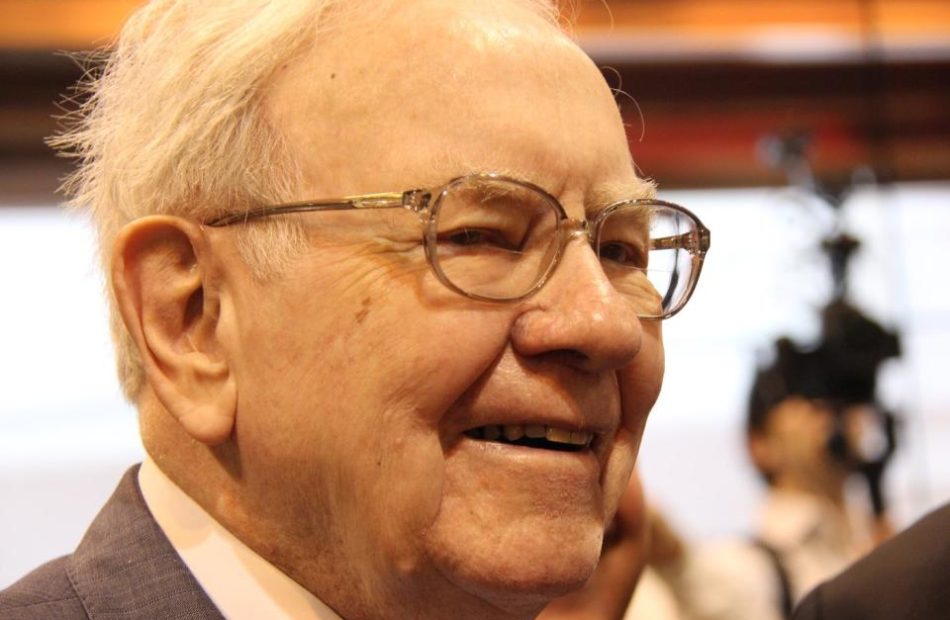Nvidia Stock Falls Again. Should You Buy the Dip?
Nvidia (NASDAQ: NVDA) was among the tech stocks plunging today after the Bureau of Labor Statistics reported cooler-than-expected job growth in August. Just 142,000 jobs were added last month, below expectations at 161,000, and readings from June and July were revised downward as well.
The news led investors to believe that the economy was weakening faster than expected, which could be particularly damaging for growth and tech stocks like Nvidia that are relying on billions in infrastructure spending to advance new generative artificial intelligence (AI) technologies.
As a result, tech stocks were down broadly with the Nasdaq Composite down 2.3% as of 1:19 p.m. ET, and Nvidia was off 4% at the same time after falling as much as 5.8% earlier in the session. The iShares Semiconductor ETF was down 4% as well, showing the chip sector was broadly impacted.
What it means for Nvidia
It’s been a rough week for the AI chip leader. The stock plunged on Tuesday, seemingly because of rumors that the Justice Department had issued it a subpoena related to an antitrust investigation, though Nvidia later said that wasn’t true.
Still, today’s pullback shows that the stock is sensitive to the broader macro environment. Investors apparently believe that a recession or an economic slowdown could slam the brakes on the AI boom as it would deter big tech companies and start-ups from investing in the new technology.
That would be a problem for Nvidia as its business and its lofty valuation is based on soaring demand for its data center GPU components, which are highly valued for their ability to run complex AI models.
Why it could be a buying opportunity
The jobs report is just one data point of many, and while there are other signs that the economy is weakening, it doesn’t look like a recession is around the corner — the unemployment rate is still low at 4.2%.
Additionally, the Federal Reserve is expected to cut interest rates later this month, which should give a boost to Nvidia and the broader economy.
The stock did fall after its earnings report last week, but its overall numbers were strong. The business continues to grow exceptionally fast, and it expects to ramp up production of its new Blackwell platform, which is already seeing strong demand, in Q4.
Finally, Nvidia’s biggest customers, like Microsoft, Alphabet, and Meta Platforms, are unlikely to be fazed by a hiccup in the economy as these companies are sitting on tens of billions of dollars in cash and have all declared that investing in AI infrastructure is a top priority.
It would likely take a significant economic crash to derail their investment plans, meaning Nvidia is more protected from economic volatility than it may seem. That’s a good reason to bet on the stock recovering from today’s slide.
Should you invest $1,000 in Nvidia right now?
Before you buy stock in Nvidia, consider this:
The Motley Fool Stock Advisor analyst team just identified what they believe are the 10 best stocks for investors to buy now… and Nvidia wasn’t one of them. The 10 stocks that made the cut could produce monster returns in the coming years.
Consider when Nvidia made this list on April 15, 2005… if you invested $1,000 at the time of our recommendation, you’d have $656,938!*
Stock Advisor provides investors with an easy-to-follow blueprint for success, including guidance on building a portfolio, regular updates from analysts, and two new stock picks each month. The Stock Advisor service has more than quadrupled the return of S&P 500 since 2002*.
*Stock Advisor returns as of September 3, 2024
Randi Zuckerberg, a former director of market development and spokeswoman for Facebook and sister to Meta Platforms CEO Mark Zuckerberg, is a member of The Motley Fool’s board of directors. Suzanne Frey, an executive at Alphabet, is a member of The Motley Fool’s board of directors. Jeremy Bowman has positions in Meta Platforms. The Motley Fool has positions in and recommends Alphabet, Meta Platforms, Microsoft, Nvidia, and iShares Trust-iShares Semiconductor ETF. The Motley Fool recommends the following options: long January 2026 $395 calls on Microsoft and short January 2026 $405 calls on Microsoft. The Motley Fool has a disclosure policy.
Nvidia Stock Falls Again. Should You Buy the Dip? was originally published by The Motley Fool
Glancy Prongay & Murray LLP Reminds Investors of Looming Deadline in the Class Action Lawsuit Against Walgreens Boots Alliance, Inc. (WBA)
LOS ANGELES, Sept. 06, 2024 (GLOBE NEWSWIRE) — Glancy Prongay & Murray LLP (“GPM”) reminds investors of the upcoming September 10, 2024 deadline to file a lead plaintiff motion in the class action filed on behalf of investors who purchased or otherwise acquired Walgreens Boots Alliance, Inc. (“Walgreens” or the “Company”) WBA securities between October 12, 2023 to June 26, 2024, inclusive (the “Class Period”).
If you suffered a loss on your Walgreens investments or would like to inquire about potentially pursuing claims to recover your loss under the federal securities laws, you can submit your contact information at www.glancylaw.com/cases/Walgreens-Boots-Alliance-Inc-1/. You can also contact Charles H. Linehan, of GPM at 310-201-9150, Toll-Free at 888-773-9224, or via email at shareholders@glancylaw.com to learn more about your rights.
On June 27, 2024, Walgreen released its third quarter 2024 financial results and reduced its revenue guidance for the fourth quarter and full fiscal year 2024 due to “significant challenges in the U.S. Retail Pharmacy business stemming from a worse-than-expected consumer environment and challenging pharmacy industry trends.”
On this news, Walgreen’s stock price fell $3.47, or 22.2%, to close at $12.19 per share on June 27, 2024, thereby injuring investors.
The complaint filed in this class action alleges that throughout the Class Period, Defendants made materially false and/or misleading statements, as well as failed to disclose material adverse facts about the Company’s business, operations, and prospects. Specifically, Defendants failed to disclose to investors that: (1) the Company’s pharmacy division was not equipped to handle the ongoing challenges in its industry and would require significant restructuring to create a sustainable model; and (2) as a result, Defendants’ positive statements about the Company’s business, operations, and prospects were materially misleading and/or lacked a reasonable basis at all relevant times.
Follow us for updates on LinkedIn, Twitter, or Facebook.
If you purchased or otherwise acquired Walgreens securities during the Class Period, you may move the Court no later than September 10, 2024 to request appointment as lead plaintiff in this putative class action lawsuit. To be a member of the class action you need not take any action at this time; you may retain counsel of your choice or take no action and remain an absent member of the class action. If you wish to learn more about this class action, or if you have any questions concerning this announcement or your rights or interests with respect to the pending class action lawsuit, please contact Charles Linehan, Esquire, of GPM, 1925 Century Park East, Suite 2100, Los Angeles, California 90067 at 310-201-9150, Toll-Free at 888-773-9224, by email to shareholders@glancylaw.com, or visit our website at www.glancylaw.com. If you inquire by email please include your mailing address, telephone number and number of shares purchased.
This press release may be considered Attorney Advertising in some jurisdictions under the applicable law and ethical rules.
Contacts
Glancy Prongay & Murray LLP, Los Angeles
Charles Linehan, 310-201-9150 or 888-773-9224
shareholders@glancylaw.com
www.glancylaw.com

Market News and Data brought to you by Benzinga APIs
© 2024 Benzinga.com. Benzinga does not provide investment advice. All rights reserved.
15 Realtors® Join Ranks of Florida Realtors® Board Certified Professionals
ORLANDO, Fla., Sept. 6, 2024 /PRNewswire/ — The “best of the best” – that’s what 15 Realtors in communities across Florida now can claim, having recently earned their endorsement as a Florida Board Certified Professional.
“A Florida Realtors Board Certified Professional is a Realtor that has earned the distinction of high competence and professionalism through ongoing work in sales, volunteerism, advocacy and ethical treatment of the public, consumers and other Realtors,” says 2024 Florida Realtors President Gia Arvin, broker-owner with Matchmaker Realty in Gainesville and a Board Certified Professional.”
The members of Florida Realtors’ 2024 class of Board Certified Professionals are:
- Cathy Alley, Emerald Coast Association of Realtors
- Michele Bailey, Emerald Coast Association of Realtors
- Hollie Billero Buldo, Realtors Association of Indian River County
- Cindy Birge, Central Panhandle Association of Realtors
- Eddie Blanco, Miami Association of Realtors
- Sandra Fernandez, Miami Association of Realtors
- Benjamin Gilbert, Orlando Regional Realtors Association
- Erin Halstead, Englewood Area Board of Realtors
- Patti E. Ketcham, Tallahassee Board of Realtors
- Gonzalo Mejia, Northeast Florida Association of Realtors
- Catherine “Cookie” Miller, West Pasco Board of Realtors
- Charles Sowers, Central Panhandle Association of Realtors
- Tula Tucker, Emerald Coast Association of Realtors
- Sue Vasquez, Osceola County Association of Realtors
- Mary Anne Windes, Emerald Coast Association of Realtors
An advisory group on industry professionalism led to the development of the Board Certified Professional program. With so many new licensees entering the profession each year, certification was deemed necessary, not only to honor those working at the peak of their profession, but also to create a benchmark for new Realtors to work toward. Twenty Realtors earned the endorsement in the 2023 inaugural year for the program.
“Taking the time and effort to increase professionalism is not only the right thing to do, it strengthens the value of being a Realtor and a member of our local, state and national organizations,” Arvin says. “As one of the largest professions in our state, we need to promote Realtor members that work at the highest levels of professionalism – and we accomplish this with the Florida Realtors Board Certified Professional program.”
Realtor members had to demonstrate a high level of proficiency in four key areas: an in-depth knowledge of the contractual details of a real estate transaction, education, community service and supporting homeownership through advocacy efforts.
For more information about the program, go to Florida Realtors’ member website at https://www.floridarealtors.org/membership/specialties/board-certified. The next application period will open in January 2025.
Florida Realtors® serves as the voice for real estate in Florida. It provides programs, services, continuing education, research and legislative representation to 238,000 members in 51 boards/associations. Florida Realtors® Newsroom website is available at http://floridarealtors.org/newsroom.
![]() View original content to download multimedia:https://www.prnewswire.com/news-releases/15-realtors-join-ranks-of-florida-realtors-board-certified-professionals-302240642.html
View original content to download multimedia:https://www.prnewswire.com/news-releases/15-realtors-join-ranks-of-florida-realtors-board-certified-professionals-302240642.html
SOURCE Florida Realtors
Market News and Data brought to you by Benzinga APIs
© 2024 Benzinga.com. Benzinga does not provide investment advice. All rights reserved.
HP accused of ‘complete lack of humanity’ after suing Mike Lynch’s family
A close friend of Mike Lynch has accused the US software company Hewlett Packard Enterprise (HPE) of a “complete lack of humanity” for suing the tech tycoon’s surviving family.
Patrick Jacob said that the business had “already begun circling like vultures” by confirming that it planned to continue a £3bn fraud lawsuit against Lynch’s estate. Antonio Neri, HPE’s chief executive, said the company had a “fiduciary duty” to pursue damages.
“The chief executive’s recent comments show that HPE has reverted to its old tactics – pursuing a man through a relentless battle in the press and now his widow,” Mr Jacob said.
“Before the bodies are even laid to rest, they’ve already begun circling like vultures, demonstrating a complete lack of humanity. This is nothing short of heartless and distasteful.”
Lynch and his 18-year-old daughter Hannah were among seven people who died after his superyacht, Bayesian, sank off the coast of Sicily last month. Lynch’s wife, Angela Bacares, survived. The couple have another daughter, Esme.
HPE had pursued Lynch for fraud over the £7bn sale of his software company Autonomy to Hewlett Packard, a previous incarnation of the company, in 2011.
While Lynch had been cleared of US criminal charges in June over the deal, HPE had won a civil lawsuit in the High Court in 2022. A judge had been expected to award damages in the case by the end of the year, with HPE demanding $4bn (£3bn).
HPE said this week: “It is HPE’s intention to follow the proceedings through to their conclusion.”
Speaking to Bloomberg, Mr Neri said: “Fundamentally we believe the things that took place were not in the interest of the shareholders and we need to see it through.”
Mr Jacob, who runs the financial advisory firm Anthem Corporate Finance, was a close friend of the Lynch family and visited Lynch while he awaited trial in San Francisco. Invoke Capital, Lynch’s investment firm, had nominated him to a board position at the cyber security company Darktrace. He served for a year until voters rejected his election in December due to his association with Lynch.
HPE is able to continue its lawsuit against Mr Lynch’s estate, which will be able to appeal the 2022 judgment after a decision on damages is made. Mr Justice Hildyard said when delivering the judgment in 2022 that damages would be “substantial” but “considerably less than claimed”. HPE had originally claimed $5bn in damages – believed to be significantly more than Lynch’s net worth.
Mr Jacob’s remarks came as Poppy Gustafsson, Darktrace’s chief executive, announced that she would step down as the business prepares for a sale.
Ms Gustafsson, who co-founded the company and had previously worked for Lynch at Autonomy, said it was the “right time to hand over the reins” ahead of the business going private in a £4.3bn deal.
Jill Popelka, who joined the company at the start of the year and took over as chief operating officer at the company earlier this summer, will become chief executive. She has held senior roles at technology companies including Accenture and Snapchat’s owner, Snap.
Darktrace is preparing to leave the London Stock Exchange after a three-year stint on the market. The company agreed to a takeover by private equity firm Thoma Bravo in April.
Lynch had been poised to net £300m from the disposal of the business. He held 7pc of the company in April along with Ms Bacares – although they had sold down some of their stake since.
Analyst Report: Verizon Communications Inc
Analyst Profile
Joseph F. Bonner, CFA
Senior Analyst: Communication Services & Technology
Joe covers the Communication Services sector and selected software technology stocks for Argus. In 2010, he was named #5 Stock Picker for Telecom Services in the Wall Street Journal’s Best on the Street Analyst Survey. In 2008, Joe was named #1 Stock Picker for Media: U.S. by the Financial Times and was second in the Wall Street Journal’s Best on the Street Analyst Survey for Telecommunications: Fixed Line. For more than a decade, Joe worked with Technicolor Inc., where he focused on financial and legal issues. He received his Masters in Business Administration from Fordham University in New York, where he concentrated in Finance. He earned a BA in International Affairs from the George Washington University, and spent three years with the Peace Corps in Talgar, Kazakhstan, developing an English Language resource center and teaching students. Joe is a CFA charterholder.
Market Digest: NYT, VZ
Summary
With Labor Day weekend now behind us, insider sentiment, as expressed by data from Vickers Stock Research, doesn’t suggest a broad mover higher for stocks, nor does it suggest a big move lower. Compared to the prior week, Vickers’ sell/buy ratios have remained largely stable, with the Total One-Week Sell/Buy Ratio rising slightly to 4.22 from 4.05, while the Total Eight-Week Sell/Buy Ratio has fallen slightly to 4.52 from 4.75. Meanwhile, Vickers’ Insider Index is now at -19.57 compared to last week’s -19.49, but is improved from the annual low of -20.98 set in early August. Surrounded by an environment of swirling geopolitical issues, ‘pending’ interest-rate cuts, and a contentious presidential election ahead, it is hard to blame any investor, insider or not, for thinking a seat on the sidelines may be reasonable right now. On a sector basis, insider buying outpaced selling in the Energy sector last week by a factor of 9.5-times. On the flipside, selling by insiders last week was greatest in Fi
Upgrade to begin using premium research reports and get so much more.
Exclusive reports, detailed company profiles, and best-in-class trade insights to take your portfolio to the next level
One of the biggest AI stocks of the year hit with downgrade from JPMorgan
It’s been a terrible couple of weeks for Super Micro Computer (SMCI) stock.
Shares of the data center server maker, considered one of this year’s biggest beneficiaries of the AI craze, have cratered more than 30% since the delay of its annual report in late August, shortly after short seller Hindenburg Research accused the AI high flyer of accounting manipulation.
On Friday, the stock took a hit falling more than 6% amid an overall tech sell-off. JPMorgan analysts downgraded Super Micro to Neutral from Overweight and slashed its price target almost in half to $500.
“As a result of our expectations for a near-term overhang for the shares from the uncertainty, we prefer to recommend new investors to remain on the sidelines till the company is back in compliance,” wrote JPMorgan’s Samik Chatterjee and his team.
The analysts clarified the downgrade was not led by lower confidence in the company’s ability to regain compliance with regulators by issuing its annual financial filing, nor the content of the Hindenburg report.
Apart from the filing, JPMorgan analysts expect “a response from Super Micro to ensure that customers do not divert orders, which could involve aggressive pricing, in our view, and the competitive response from peers.”
Analysts from Barclays and CFRA also downgraded the stock in recent days after the San Jose, Calif.-based company said it needed more time to file its annual report for its fiscal year ending June 30.
“Additional time is needed for SMCI’s management to complete its assessment of the design and operating effectiveness of its internal controls over financial reporting as of June 30, 2024,” the company said in a statement on Aug. 28.
The announcement came a day after Hindenburg Research claimed, among other things, “accounting manipulation” at the artificial intelligence high flyer.
The short seller claimed that despite a $17.5 million settlement in August 2020 with the SEC following an inquiry for “widespread accounting violations,” Super Micro’s business practices did not improve, and senior executives who had left amid the scandal were later rehired.
“All told, we believe Super Micro is a serial recidivist,” read the report.
Shares of Super Micro soared from below $300 in early January to a peak of nearly $1,200 by March, when the stock was added to the S&P 500 (^GSPC).
The ticker also joined the Nasdaq 100 index (^NDX) in July.
On Friday, shares were trading just below the $400 level. Despite the steep declines, Super Micro is still up roughly 35% year to date.
The company recently announced a 10-for-1 stock split effective Oct. 1.
Ines Ferre is a senior business reporter for Yahoo Finance. Follow her on X at @ines_ferre.
Click here for the latest stock market news and in-depth analysis, including events that move stocks
Read the latest financial and business news from Yahoo Finance
Why Nvidia Stock Is Plummeting Again Today
Nvidia (NASDAQ: NVDA) stock is getting hit with another day of big sell-offs Friday. The company’s share price was down 4.5% as of 1:15 p.m. ET, according to data from S&P Global Market Intelligence.
Nvidia stock is losing ground in conjunction with an underwhelming jobs published by the U.S. Labor Department today. Recent news about an investigation into the company by the Department of Justice (DoJ) on antitrust grounds is also playing a role in the pullback.
Disappointing jobs numbers are dragging Nvidia stock down
Starting in 2022, the Federal Reserve began an aggressive campaign of interest rate increases designed to combat roaring inflation. The U.S. central banking authority had sought to engineer an economic soft landing that would slow currency devaluation while also avoiding a recession.
While the Fed is widely expected to finally deliver an interest rate cut later this month, investors have recently become more skeptical about the likelihood of the soft-landing scenario being achieved. The jobs report published by the Labor Department today have provided the latest bit of bad news on that front, and Nvidia and other growth stocks are getting hit particularly hard.
According to the data, the U.S. added 142,000 jobs in August — falling short of the average Wall Street target’s call for 160,000 new job additions. The size of the miss is particularly notable because analysts and economists had already started to revise targets downward in light of other economic indicators. For example, investors received news earlier in the week that U.S. manufacturing production had declined again last month. So even though the long-awaited pivot to rate cuts now appears to be imminent, investors may not be getting the bullish macroeconomic backdrop they had hoped for.
Is Nvidia in danger of an antitrust suit?
On Tuesday, Bloomberg published a report stating that Nvidia had received a subpoena from the Justice Department as part of an antitrust investigation. The media outlet first reported on the probe in June, and its subpoena report raised concerns that the investigation was escalating and prompted sell-offs of the artificial intelligence (AI) leader’s stock.
Nvidia responded publicly to Bloomberg’s report yesterday and stated that it had not been subpoenaed by the DoJ, which helped spur a rebound for the stock, but the possibility of a looming antitrust suit was thrust back into the spotlight. In a report published today, Business Insider detailed a letter written by Senator Elizabeth Warren voicing support for an antitrust investigation into Nvidia. Warren raised concerns that the company has become too influential in the AI space and stated that its dominant market position posed “dire economic risks.”
Nvidia’s advanced graphics processing units (GPUs) have become the foundational hardware for AI training and other applications, and the company has a commanding lead in the product category. But while the company dominates the advanced GPU market, it’s not clear that the DoJ would win an antitrust suit against the company even if it decided to pursue such action.
For risk-tolerant investors willing to embrace volatility, recent pullbacks for Nvidia stock could be a worthwhile buying opportunity.
Should you invest $1,000 in Nvidia right now?
Before you buy stock in Nvidia, consider this:
The Motley Fool Stock Advisor analyst team just identified what they believe are the 10 best stocks for investors to buy now… and Nvidia wasn’t one of them. The 10 stocks that made the cut could produce monster returns in the coming years.
Consider when Nvidia made this list on April 15, 2005… if you invested $1,000 at the time of our recommendation, you’d have $656,938!*
Stock Advisor provides investors with an easy-to-follow blueprint for success, including guidance on building a portfolio, regular updates from analysts, and two new stock picks each month. The Stock Advisor service has more than quadrupled the return of S&P 500 since 2002*.
*Stock Advisor returns as of September 3, 2024
Keith Noonan has no position in any of the stocks mentioned. The Motley Fool has positions in and recommends Nvidia. The Motley Fool has a disclosure policy.
Why Nvidia Stock Is Plummeting Again Today was originally published by The Motley Fool
Treasury recovers $1.3 billion in unpaid taxes from high-wealth tax dodgers
WASHINGTON (AP) — The IRS has collected $1.3 billion from high-wealth tax dodgers since last fall, the agency announced Friday, crediting spending that has ramped up collection enforcement through President Joe Biden’s signature climate, health care and tax package signed into law in 2022.
Treasury Secretary Janet Yellen and IRS Commissioner Danny Werfel traveled to Austin, Texas, to tour an IRS campus and announce the latest milestone in tax collections as Republicans warn of big future budget cuts for the tax agency if they take over the White House and Congress.
Yellen said in a speech in Austin that in 2019, the top one percent of wealthy Americans owed more than one-fifth of all unpaid taxes, “leaving ordinary Americans to shoulder the burden.”
“To fix this, we’ve channeled IRS funding toward significant investments to combat tax evasion,” she said.
In 2023 and 2024 the IRS launched a series of initiatives aimed at pursuing high-wealth individuals who have failed to pay their tax debts. The IRS said the campaign is focused on taxpayers with more than $1 million in income and more than $250,000 in recognized tax debt.
Agency officials said since the program’s launch, almost 80% of the 1,600 millionaires targeted by the IRS for failing to pay a delinquent tax debt have now made a payment, leading to over $1.1 billion recovered. And in the first six months of a new February 2024 initiative, the IRS collected $172 million from 21,000 wealthy taxpayers who have not filed tax returns since 2017.
Republicans have called for funding for the IRS to be cut.
Donald Trump’s campaign for president said he would drastically reduce spending on federal agencies — and that Democratic nominee Kamala Harris “cast the tiebreaking vote to hire 87,000 new IRS agents to go after your tip income.”
That debunked claim comes from a plan the Treasury Department proposed in 2021 to bring on that many IRS employees over the next decade if it got the money. At least 50,000 IRS employees are expected to retire over the next five years.
The National Taxpayer Advocate, the independent IRS watchdog, issued a 2023 annual report stating that the IRS employs roughly 681 armed agents.
In its efforts to modernize, the agency this year also launched a program called Direct File, which allows people with very simple W-2s to calculate and submit their returns directly to the IRS. The IRS said in April that those using the program claimed more than $90 million in refunds.
While the program included 12 participating states in the 2024 tax filing season, more states have joined in for the 2025 tax season, including Maryland, Oregon, New Jersey, Pennsylvania, New Mexico, Connecticut, North Carolina, Wisconsin, and Maine.
34% of Warren Buffett's $318 Billion Portfolio Is Invested in These 8 "Forever" Stocks
In 1965, Warren Buffett became CEO of Berkshire Hathaway (NYSE: BRK.A)(NYSE: BRK.B) and began a stretch of notable outperformance, compared to Wall Street’s benchmark stock indexes. Over nearly six decades, he’s overseen a cumulative return in his company’s Class A shares (BRK.A) that tops 5,700,000%!
Money managers who run circles around Wall Street tend to garner a lot of attention. But when you deliver a gain of more than 5,700,000%, investors will pay attention to your every word and potentially mirror your buying and selling activity.
What’s interesting about the Oracle of Omaha’s success is that he’s predominantly been an open book regarding what traits he looks for in investments. For instance, Buffett regularly seeks out time-tested businesses with identifiable competitive advantages and strong management teams that can be held for years, if not decades. He’s also a big fan of concentrating his company’s invested assets in his best ideas.
However, not all 45 stocks held in Berkshire Hathaway’s roughly $318 billion investment portfolio share the same outlook. While “years” tends to be the typical holding period for a stock in Berkshire’s portfolio, Warren Buffett’s latest annual letter to shareholders outlined eight stocks that were dubbed “indefinite” holdings.
As you might imagine, top investment ideas would be expected to stick around for a long time. These eight forever holdings currently account for a whopping 34% ($106.5 billion) of Berkshire Hathaway’s invested assets.
No. 1: American Express, $39.2 billion (12.3% of invested assets)
Following the sale of around 150 million shares of Bank of America since the midpoint of July by Buffett and his team, credit services goliath American Express (NYSE: AXP) has vaulted to the No. 2 spot by market value in Berkshire’s portfolio. “AmEx,” as the company is more commonly known, has been a continuous holding by Buffett’s company since 1991.
Financials are the Oracle of Omaha’s favorite sector, largely because they’re cyclical. Buffett and his top investment aides, Todd Combs and Ted Weschler, are fully aware that recessions are a normal and inevitable part of the economic cycle. Rather than throwing darts and trying to guess when these downturns will occur, they lean on a numbers game that undeniably works in their favor.
In the 79 years since World War II ended, there have been a dozen recessions in the U.S., and all but three resolved in less than 12 months. By comparison, almost every period of growth has endured multiple years, with two expansions hitting the 10-year mark. Wagering that the U.S. economy and consumer/enterprise spending will grow over long periods has been a genius move.
American Express also benefits from both sides of the transaction counter. In the U.S., it’s the third-largest payment processor by credit card network purchase volume, which allows it to collect fees from merchants. However, it also generates fees and interest income from its line of credit cards.
Don’t overlook AmEx’s ability to attract high earners, either. High-income cardholders are less likely to adjust their spending habits or fail to pay their bill during minor economic disruptions.
No. 2: Coca-Cola, $29 billion (9.1% of invested assets)
The only forever holding that’s been in Berkshire Hathaway’s portfolio even longer than AmEx is beverage giant Coca-Cola (NYSE: KO), which has been continuously held since 1988.
Berkshire’s cost basis in Coca-Cola is only $3.2475 per share, which equates to a nearly 60% yield on cost, based on Coke’s annual payout of $1.94 per share. In other words, Buffett is seeing his initial investment in Coca-Cola more than double from the dividend income alone every two years.
One reason Coca-Cola is such a wonderful company is because it’s a consumer staples stock. It’s providing a good (beverages) that consumers need, regardless of how well or poorly their country’s economy is performing. This leads to highly predictable operating cash flow year after year.
In terms of consumer goods companies, you’d probably struggle to find a business with better branding than Coca-Cola. Kantar’s annual “Brand Footprint” report labeled Coca-Cola as the most-chosen brand by consumers off retail shelves for a 12th consecutive year. This is a testament to its lengthy history as a public company, as well as its ability to connect with mature and young audiences through a combination of brand ambassadors and digital media.
Furthermore, Coca-Cola’s geographic diversity is virtually unmatched. On top of having more than two dozen brands that generate at least $1 billion in annual sales, the company has operations in every country except Cuba, North Korea, and Russia. Coca-Cola is able to generate meaningful cash flow in developed countries, all while moving the organic growth needle in emerging markets.
No. 3: Occidental Petroleum, $14.5 billion (4.6% of invested assets)
While it’s been known for some time that AmEx and Coca-Cola are indefinite holdings for Warren Buffett, the addition of integrated oil and gas stock Occidental Petroleum (NYSE: OXY) in his February-released annual letter to shareholders was an eyebrow-raiser.
The Oracle of Omaha and his team began purchasing shares of Occidental in the first quarter of 2022. Since then, Berkshire’s stake in the company has grown to almost 255.3 million shares, or about 27.3% of Occidental’s outstanding shares. Buffett has been given permission by U.S. regulators to purchase up to a 50% stake in Occidental, but he has no interest in acquiring the company outright.
Since Warren Buffett is a big proponent of never betting against America, one of the most logical wagers he can make is on growing demand for energy commodities, such as oil.
One of the more interesting catalysts for Occidental is global crude oil supply constraints. Approximately three years of significant capital spending reductions by global energy majors during the COVID-19 pandemic has the industry playing catchup. When the supply of an in-demand good is tight, it tends to buoy its price.
Few integrated oil and gas operators generate a higher percentage of their revenue from drilling than Occidental. If the spot price of crude oil remains elevated or increases further, Occidental should enjoy an outsized benefit to its operating cash flow. Just be warned that a reciprocal event (i.e., a decline in the spot price of crude oil) would adversely impact its cash flow more than other integrated energy companies.
No. 4 through No. 8: The five Japanese trading houses, $23.7 billion (combined) from Mitsubishi (2.3% of invested assets), Itochu (2%), Mitsui (1.7%), Marubeni (0.8%), and Sumitomo (0.7%)
The other group of stocks Buffett talked up as forever holdings in his newest annual letter to shareholders is Japan’s five major trading houses: Mitsubishi (OTC: MTSU.Y)(OTC: MSBHF), Itochu (OTC: ITOCY)(OTC: ITOCF), Mitsui (OTC: MITSY)(OTC: MITSF), Marubeni (OTC: MARUY)(OTC: MARUF), and Sumitomo (OTC: SSUM.Y)(OTC: SSUM.F).
You might be wondering why some of the companies Buffett is so high on account for less than 1% of Berkshire’s invested assets. The simple reason is that Buffett and his team agreed to not purchase a greater than 9.9% stake in these five Japanese trading houses. These five stakes currently range from 7.5% (for Itochu) to 8.6% (for Mitsubishi) of outstanding shares.
One of the likely reasons the Oracle of Omaha favors these five businesses as indefinite holdings is because they’re heavily ingrained in Japan’s economy. Mitsubishi, Itochu, Mitsui, Marubeni, and Sumitomo are involved in oil and gas operations, food production, mining, renewable energy, chemicals, and so on. The list of what these companies have their fingers in would be a book in itself. If an investor believes the Japanese economy will grow over the long run, these trading houses make for no-brainer buys.
Valuation is another key lure for Japan’s five trading houses. The stock market is historically pricey at the moment, and it’s been this way for much of the last decade. Japan’s trading houses have low price-to-earnings ratios and generally robust capital-return programs.
What’s more, the management teams of these five businesses receive reasonably low compensation packages. This means the focus is on shareholder returns, which is something Warren Buffett appreciates immensely.
Should you invest $1,000 in American Express right now?
Before you buy stock in American Express, consider this:
The Motley Fool Stock Advisor analyst team just identified what they believe are the 10 best stocks for investors to buy now… and American Express wasn’t one of them. The 10 stocks that made the cut could produce monster returns in the coming years.
Consider when Nvidia made this list on April 15, 2005… if you invested $1,000 at the time of our recommendation, you’d have $650,810!*
Stock Advisor provides investors with an easy-to-follow blueprint for success, including guidance on building a portfolio, regular updates from analysts, and two new stock picks each month. The Stock Advisor service has more than quadrupled the return of S&P 500 since 2002*.
*Stock Advisor returns as of September 3, 2024
Bank of America and American Express are advertising partners of The Ascent, a Motley Fool company. Sean Williams has positions in Bank of America. The Motley Fool has positions in and recommends Bank of America and Berkshire Hathaway. The Motley Fool recommends Occidental Petroleum. The Motley Fool has a disclosure policy.
34% of Warren Buffett’s $318 Billion Portfolio Is Invested in These 8 “Forever” Stocks was originally published by The Motley Fool











